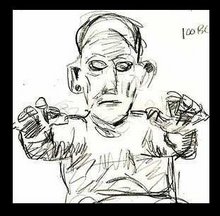1/25/2022
Why Are People Doing This Crazy Stuff!!
Just trying to understand the society around me and thinking about people who believe "the Big Lie" as a rationilztion for even more crazy beliefs and actions...Came across this reseracher, Karen M. Douglas, and found this article online by her and some other people about why people believe in crazy conspiracy stuff (NOT theories in their minds)
Social Motives
Causal explanations, conspiracy explanations included, are also informed by various social motivations, including the desire to belong and to maintain a positive image of the self and the in-group. Scholars have suggested that conspiracy theories valorize the self and the in-group by allowing blame for negative outcomes to be attributed to others. Thus, they may help to uphold the image of the self and the in-group as competent and moral but as sabotaged by powerful and unscrupulous others. If this is the case, we can expect conspiracy theories to be particularly appealing to people who find the positive image of their self or in-group to be threatened (Cichocka, Marchlewska, & Golec de Zavala, 2016).
These findings suggest that conspiracy theories may be recruited defensively, to relieve the self or in-group from a sense of culpability for their disadvantaged position. In keeping with this defensive motivation, conspiracy belief is associated with narcissism—an inflated view of oneself that requires external validation and is linked to paranoid ideation (Cichocka, Marchlewska, & Golec de Zavala, 2016). Conspiracy belief is also predicted by collective narcissism —a belief in the in-group’s greatness paired with a belief that other people do not appreciate it enough (Cichocka, Marchlewska, Golec de Zavala, & Olechowski, 2016). Groups who feel that they have been victimized are more likely to endorse conspiracy theories about powerful out-groups (Bilewicz, Winiewski, Kofta, & Wójcik, 2013).
https://journals.sagepub.com/doi/full/10.1177/0963721417718261
And also this
"Conspiracy theories tend to be particularly prominent in times of crisis," said Prof Karen Douglas, a social psychologist at the University of Kent who specialises in the psychology of conspiracy theories.
"People are looking for explanations that help them cope with difficult situations when there is a lot of uncertainty and contradictory information. They might also be looking for simple answers that make them feel better, and conspiracy theories might seem to offer those simple answers."
https://www.bbc.com/news/world-us-canada-57369349
Subscribe to:
Post Comments (Atom)


No comments:
Post a Comment